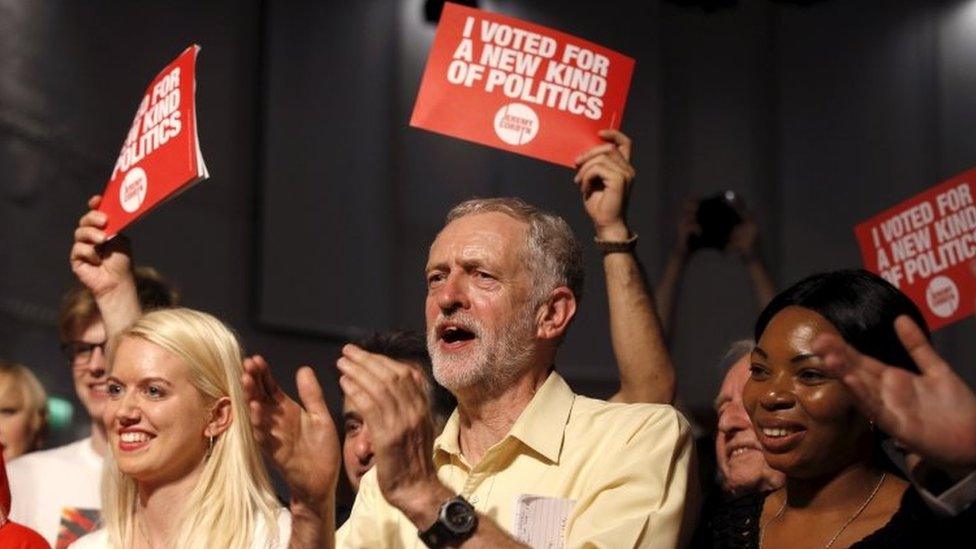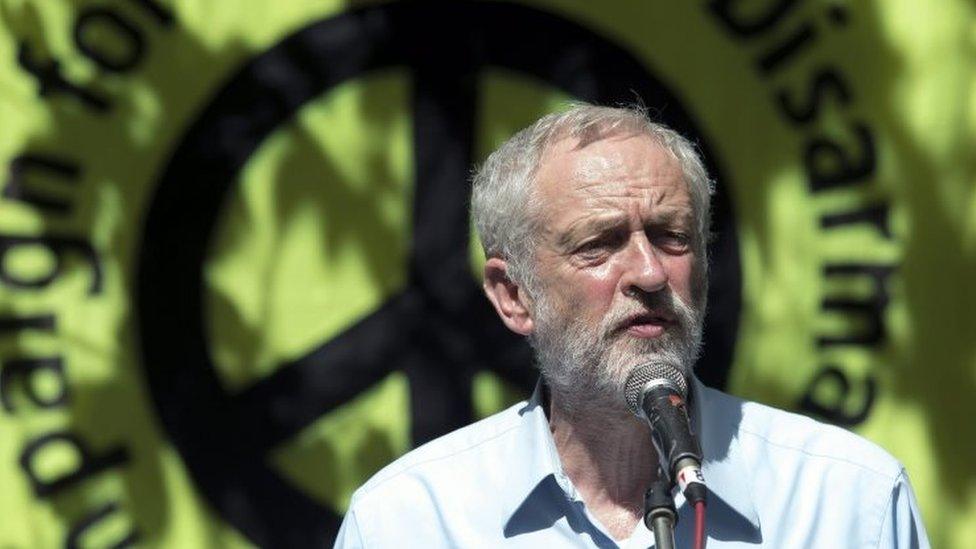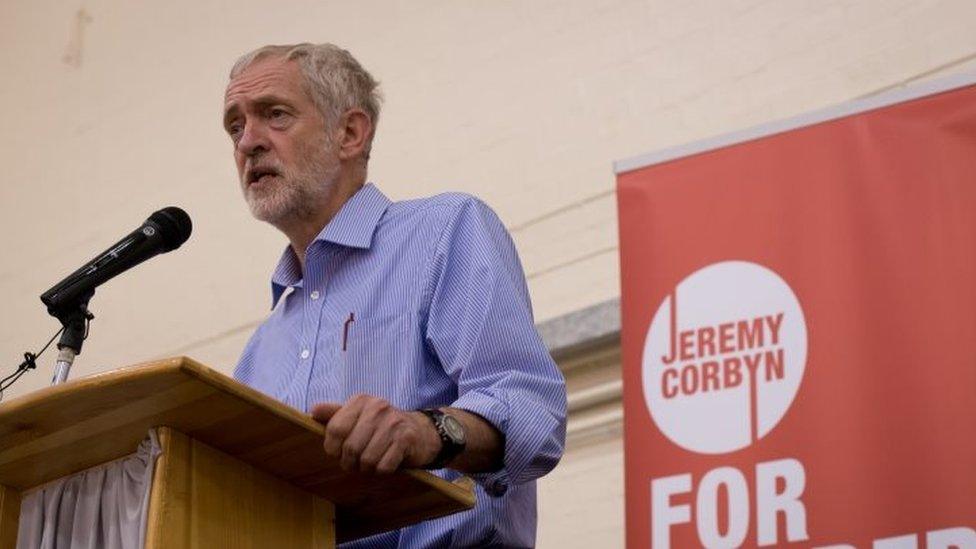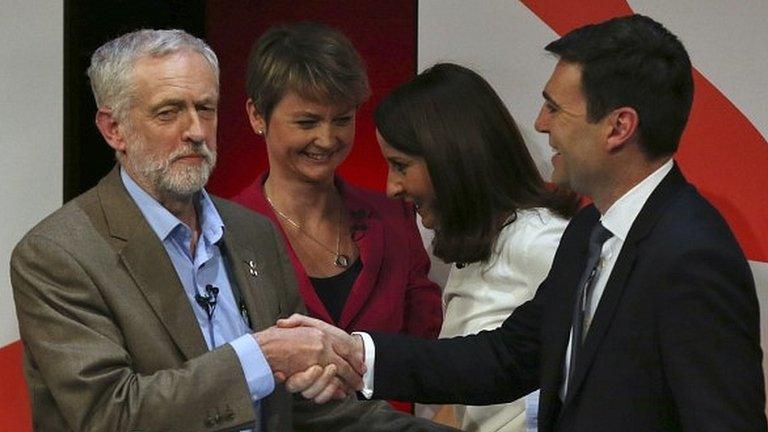What Jeremy Corbyn's leadership victory means for Labour
- Published

So, he's done it.
The 500-1 outsider. The career outsider.
The man whose entire time at Westminster has been defined by opposition to his own party.
He is now leader of Her Majesty's Official Opposition.
No one but no one, least of all Jeremy Corbyn, would have predicted this just a few months ago.
Whoever said politics was boring?
So what on earth does Mr Corbyn's victory mean for the Labour Party?
Make no mistake. I know exaggerations tumble from the mouths of political journalists rather frequently.
But this is nothing short of a political earthquake.
Speak to people at Westminster and they cannot find adequate historical comparisons with what has just happened.
"This is not even like Michael Foot leading Labour in the 80s, or Iain Duncan Smith in charge of us a decade or so ago," one Conservative minister mused to me the other day.
"They were both serious men. It'd be like us electing..." he went on, before discreetly namechecking a handful of colleagues he would place in the "nutter" category.
So let's take a look at a handful of issues that will face Jeremy Corbyn and Labour in the coming weeks and months.

National security

Expect the government to go hard on this and quickly.
Jeremy Corbyn has spent his life opposing foreign military adventures, chairs the Stop the War coalition and is highly likely to oppose the UK extending airstrikes against the Islamic State group into Syria.
He's not keen on the UK having nuclear weapons or being in the military alliance NATO.
The Prime Minister and Chancellor have already rehearsed the argument that all this amounts to a threat to the UK's national security.
Expect that argument to crank up a few notches.

Party discipline
When you have built your entire reputation around being independent minded and willing to ignore what your party leadership tells you to do, asking others to toe the party line could prove a little tricky.
Particularly when a good number of them have spent the entire summer saying, in public, how much they disagree with you.
That old adage that in the House of Commons your opponents sit opposite you, whilst your enemies are behind you, may prove to be true rather quickly for Jeremy Corbyn.

The European Union
For many of Jeremy Corbyn's supporters, it is the clarity of his position on so many issues that attracts them to him.
But on one of the biggest political issues of the next year, whether the UK stays in or leaves the European Union, Mr Corbyn's position is less clear.
Plenty of those sitting behind him in the Commons are itching to make the case for the UK's EU membership.
But Jeremy Corbyn has previously refused to rule out campaigning to leave, and also said he had "mixed feelings" on the issue.
Over the summer he sought to sound a bit more positive about Brussels -- but only after he came under pressure to do so from his own side.

Labour winning again

The morning after the general election in May, where Labour was crushed, plenty of people within the party were certain they knew why.
The party was seen to be too left wing, they said.
So, why has the Labour movement elected Jeremy Corbyn?
Well, plenty came to the opposite conclusion.
They looked at the result in Scotland, where Labour were nuked by the SNP - and concluded they were convincingly beaten by a party more left wing than them.
There are threats everywhere for Labour.
But there is another twist here.
Not long ago, Jeremy Corbyn didn't instantly say yes when he was asked if he wanted to prime minister, usually the very reason for becoming Leader of the Opposition.
And when you challenge Mr Corbyn's supporters - and suggest his victory will amount to a moment of lunacy for the Labour Party - plenty will shrug and say his Labour opponents would all have lost the next general election anyway.
So, in summary, where does the Labour Party find itself?
Many Labour types already fret Jeremy Corbyn's election will consign their party to the unelectable fringes of British politics; too left wing for many to touch.
And yet those around Mr Corbyn - and the thousands enthused by his campaign - are energised by a politician they see as authentic, principled, different, and so appealing.
All in all, life for the Labour Party is about to get rather interesting.
- Published10 September 2015
- Published12 September 2015
